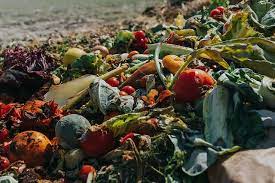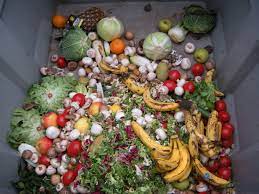There is an urgent need for proper food waste disposal as food wastes has emerged as a pressing global issue with far-reaching environmental, economic, and social consequences. As the world’s population continues to grow, and resources become scarcer, it becomes imperative to confront this challenge and seek sustainable solutions.
This article delves into the complex problem of food waste, explores its causes and impacts, and highlights innovative strategies that can be employed to reduce waste throughout the entire food supply chain.
Food waste refers to the discarding or loss of edible food along the supply chain, from production and processing to distribution, retail, and consumption. It encompasses both intentional and unintentional waste, including surplus food, trimmings, expiration of products, and plate waste.
According to the Food and Agriculture Organization (FAO), approximately one-third of all food produced for human consumption is lost or wasted globally each year, amounting to about 1.3 billion tons of food.
Numerous factors contribute to food waste at different stages of the supply chain. In developing countries, inadequate infrastructure, poor storage facilities, and inefficient logistics lead to significant losses during production and transportation. Conversely, in developed nations, wasteful consumer behavior, strict cosmetic standards, and overstocking by retailers contribute significantly to the problem.
The consequences of food waste are multi-faceted, encompassing environmental, economic, and social dimensions. Wasted food leads to unnecessary carbon emissions, strains water resources, and squanders valuable land and energy inputs.
Economically, food waste represents a staggering loss of resources, costing billions of dollars annually. Moreover, it exacerbates food insecurity, perpetuates inequality, and undermines efforts to eradicate hunger and poverty.
Efficient Solutions for Food Waste Disposal

Addressing the issue of food waste requires a holistic and collaborative approach involving stakeholders from various sectors. Governments, businesses, consumers, and civil society all have critical roles to play in tackling this challenge. Several key strategies can be implemented to reduce food waste and promote a more sustainable food system.
Food waste is a critical global issue that has far-reaching environmental, economic, and social implications. It not only squanders valuable resources but also contributes to greenhouse gas emissions and disrupts ecosystems.
In order to address this pressing challenge, it is essential to develop and implement efficient solutions for food waste disposal. This article explores various approaches to tackling food waste and their potential impact on different aspects of the environment and society.
One ecosystem greatly affected by food waste is the Everglade’s food chain. Located in Florida, the Everglades is a unique and delicate ecosystem that supports a diverse range of flora and fauna. The food chain within the Everglades relies on a delicate balance of nutrients and energy flow.
When food waste is improperly disposed of, it can disrupt this delicate balance by introducing excessive nutrients, leading to harmful algal blooms and other detrimental effects on the ecosystem. Therefore, finding efficient solutions for food waste disposal is crucial to safeguarding the Everglades and preserving its intricate food chain.
One notable solution that has gained recognition in recent years is composting. Composting is the process of breaking down organic waste, such as food scraps, into nutrient-rich compost. By composting food waste, valuable nutrients are returned to the soil, reducing the need for synthetic fertilizers and supporting healthier plant growth.
Additionally, composting diverts food waste from landfills, where it would otherwise produce harmful methane gas, a potent greenhouse gas. Composting can be implemented at various scales, from individual households to large-scale composting facilities, offering a versatile solution for managing food waste efficiently.
Read Also: How To Generate Money From Marine Debris
Another aspect related to food waste is the best practices within the best burger chain industry. This sector has the potential to generate significant amounts of food waste due to its high demand and production volumes.
By adopting efficient practices such as portion control, inventory management, and donation programs, burger chains can minimize food waste and contribute to a more sustainable food system.
Implementing these practices not only reduces environmental impact but also enhances cost savings for businesses and improves their reputation among environmentally conscious consumers.
Understanding the concept of a food web definition in environmental science, is crucial for comprehending the intricate relationships within ecosystems and the impact of food waste. A food web represents the complex network of interdependencies among different organisms in an ecosystem, illustrating the flow of energy and nutrients.
When food waste disrupts this delicate web, it can lead to imbalances and negative consequences for the overall ecosystem. Thus, efficient food waste disposal is necessary to maintain the integrity of food webs and ensure the resilience of ecosystems.
While seeking solutions for food waste disposal, it is important to consider potential drawbacks associated with certain approaches. One contentious issue is the use of genetically modified food cons (GM). Genetically modified crops have been genetically altered to exhibit specific traits, such as resistance to pests or tolerance to herbicides.
However, concerns have been raised regarding the potential long-term environmental impact and unintended consequences of GM foods. It is essential to carefully assess and regulate the use of genetically modified organisms to ensure that their introduction does not exacerbate the issues of food waste disposal or harm biodiversity.
Addressing the global challenge of food waste requires the implementation of efficient solutions. Composting, adopting best practices within the burger chain industry, and understanding the complexities of food webs are all critical components of sustainable food waste management.
While exploring these solutions, it is important to consider potential drawbacks, such as the use of genetically modified foods. By embracing innovative approaches and adopting responsible practices, we can mitigate the environmental impact of food waste and move towards a more sustainable and resilient food system.
Read Also: Products That Can Be Derived From Liquid Wastes
Furthermore, technological advancements have also played a significant role in developing efficient solutions for food waste disposal. One notable innovation is anaerobic digestion, a process that converts organic waste into biogas and nutrient-rich digestate.
Anaerobic digestion not only diverts food waste from landfills but also harnesses its energy potential by producing biogas, which can be used for electricity generation or as a renewable natural gas. This technology not only addresses the issue of food waste but also contributes to renewable energy production, reducing our reliance on fossil fuels and mitigating greenhouse gas emissions.
In addition to composting and anaerobic digestion, initiatives promoting food donation and redistribution have gained traction as effective solutions for reducing food waste. Food recovery programs partner with food retailers, restaurants, and other establishments to collect surplus food that would otherwise go to waste and redistribute it to those in need.
These programs not only prevent food waste but also address food insecurity and help alleviate hunger in local communities. By bridging the gap between excess food and food insecurity, such initiatives create a more equitable and sustainable food system.
Education and awareness also play a crucial role in combating food waste. Public campaigns and educational programs can educate individuals, businesses, and communities about the impact of food waste and provide practical tips on reducing waste at various stages, from production to consumption.
By fostering a culture of mindful consumption and responsible food management, these initiatives empower individuals to make informed choices and take action to minimize food waste in their daily lives.
Furthermore, government policies and regulations have a significant impact on food waste management. By implementing measures such as landfill bans on organic waste, mandatory composting or recycling programs, and incentives for businesses to reduce waste, governments can create a supportive framework for efficient food waste disposal.
These policies encourage businesses and individuals to adopt sustainable practices and invest in infrastructure for food waste management. It is important to acknowledge that efficient solutions for food waste disposal require a multi-faceted approach involving collaboration among individuals, businesses, governments, and organizations.
By integrating composting, anaerobic digestion, food donation programs, education, and policy interventions, we can make substantial progress in reducing food waste and mitigating its environmental impact.
Efficient solutions for food waste disposal are essential for addressing the global challenges of resource depletion, environmental degradation, and food insecurity. By implementing composting, anaerobic digestion, food donation programs, and education initiatives, we can reduce food waste, recover valuable resources, and mitigate the environmental impact of food waste.
Furthermore, government policies and regulations play a critical role in creating an enabling environment for sustainable food waste management. By embracing these solutions and working together, we can move closer to a more sustainable and resilient food system for future generations.
In order to achieve efficient food waste disposal, it is crucial to foster collaboration and innovation across various sectors. One approach is to encourage partnerships between food producers, retailers, and waste management companies. By working together, these stakeholders can implement strategies to reduce food waste at every stage of the supply chain, from production to consumption.
This can involve optimizing production processes, improving inventory management, implementing efficient packaging solutions, and educating consumers about proper food storage and utilization.
Technology also plays a vital role in enhancing food waste management. Smart sensors and data analytics can be employed to monitor food quality and shelf life, allowing for better inventory management and reducing the likelihood of food waste. Additionally, innovative apps and platforms can connect food businesses with surplus food to charities and individuals in need, facilitating the redistribution of excess food and minimizing waste.
Furthermore, adopting circular economy principles can significantly contribute to efficient food waste disposal. Rather than considering food waste as a byproduct to be discarded, it can be viewed as a valuable resource that can be utilized in various ways.
For example, food waste can be transformed into animal feed, biofuels, or even new food products through advanced processing techniques. By closing the loop and utilizing food waste as a resource, we can maximize its value and minimize its environmental impact.
Consumer behavior also plays a vital role in reducing food waste. Educating individuals about the consequences of food waste and providing practical tips for reducing waste in their own homes can lead to significant changes. Simple actions such as planning meals, proper storage of perishable items, and creative use of leftovers can go a long way in minimizing food waste on an individual level.
It is important to recognize that efficient food waste disposal is not only an environmental issue but also a social and economic one. Addressing food waste can contribute to food security by ensuring that edible food reaches those in need. It can also lead to significant cost savings for businesses and households by minimizing the expenses associated with purchasing and disposing of excess food.
While exploring efficient solutions for food waste disposal, it is essential to consider the potential consequences and drawbacks. For instance, the use of certain technologies or methods for food waste management may have associated environmental impacts or require careful regulation to ensure their safe implementation.
Additionally, it is important to prioritize strategies that align with sustainable practices and do not compromise the nutritional quality or safety of the food supply. Efficient solutions for food waste disposal are essential for addressing the global challenges of resource depletion, environmental sustainability, and food security.
By fostering collaboration, embracing technological innovations, promoting circular economy principles, and influencing consumer behavior, we can significantly reduce food waste and its associated impacts. It is crucial for governments, businesses, communities, and individuals to work together in implementing and supporting these solutions to create a more sustainable and resilient food system for the present and future generations.
Read Also: Why Enfamil Infant Formula is a Smart Choice for Your Baby’s Health

